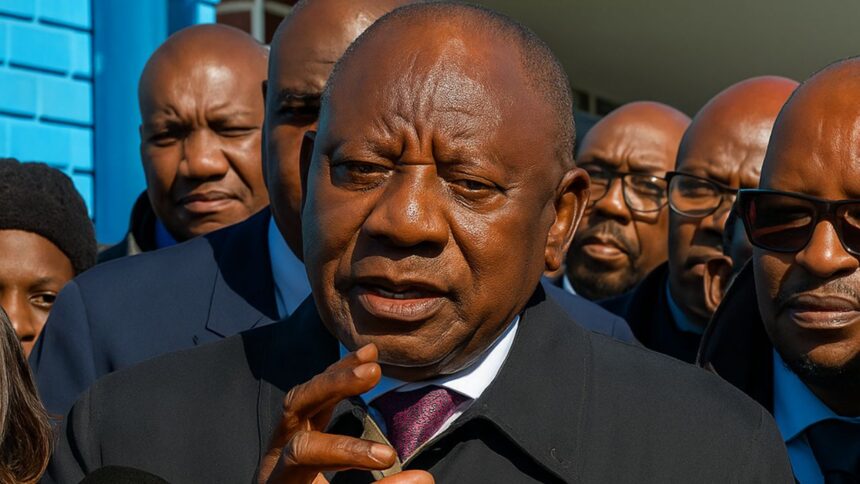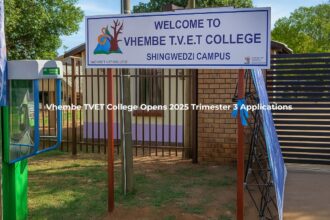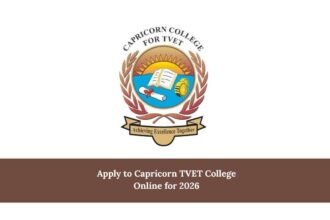President Cyril Ramaphosa Applauds the Teaching Assistants Programme Under BEEI. The Teaching Assistants Programme under the Basic Education Employment Initiative (BEEI) has become a beacon of hope for thousands of unemployed youth in South Africa.
As the country battles high rates of youth unemployment, this government-led initiative is offering real opportunities by integrating young people into the education system while boosting school support.
In a recent visit that highlighted the significance of this groundbreaking programme, President Cyril Ramaphosa made a stop at Sefako Makgatho Primary School in Saulsville, Tshwane, to personally witness the impact of the BEEI. His visit was not just symbolic; it served as a powerful reaffirmation of the government’s dedication to youth employment in South Africa.
Lifeline for Marginalised Youth
The Basic Education Employment Initiative (BEEI) was launched with the core aim of addressing the country’s persistent youth unemployment crisis. Since its inception, the programme has reached an impressive milestone: over 200,000 young people have been placed as teaching assistants in public schools across South Africa.
The initiative targets the most marginalised youth, many of whom lack previous work experience or access to the formal job market. By placing them in real-world environments within the education sector, the BEEI offers these young people a platform to gain relevant skills, earn a modest income, and contribute meaningfully to society.
Ramaphosa’s Ground-Level Engagement
Speaking to learners, teachers, and beneficiaries during his visit, President Ramaphosa expressed his enthusiasm and pride in the programme.
“I’m glad to be here and to see you all. When I made the announcement that we would be deploying up to 200,000 of you in schools across South Africa, I had high hopes. Seeing you here proves this vision has come to life,” he said.
He went on to emphasise the importance of the Teaching Assistants Programme, noting how it directly supports the heart of the nation—education.
“You are assisting in a very important area of our nation’s life. Education shapes our future, and you are helping us prepare the next generation of South Africans,” said Ramaphosa.
More Than Just Jobs – A Gateway to Opportunity
The Teaching Assistants Programme is more than a short-term job creation strategy. It is a transformative employment pathway, offering real work experience in education and instilling a sense of purpose and discipline among its participants.
President Ramaphosa acknowledged the difficult realities faced by the youth, stating:
“Yes, I know that your own situation is not the most ideal. But we are working very hard to create more permanent job opportunities in the broader economy for you.”
This statement is a clear indication of government’s plans to evolve the BEEI into a more permanent fixture within the national development agenda.
National Impact: Over 25,000 Schools Involved
The scale of the Basic Education Employment Initiative is massive. To date, the programme has been rolled out across more than 25,000 schools nationwide, making it one of the largest public youth employment programmes in South Africa’s democratic history.
Schools have benefited tremendously, not just from the additional support in classrooms but also from the energy, ideas, and tech-savviness that young people bring into learning spaces. Teachers report that the assistance has reduced their workload, improved learner engagement, and brought fresh dynamics into the school environment.
Government’s Vision for the Future
The success of the Teaching Assistants Programme is prompting ongoing discussions within government to scale it further. There are clear signs that the programme could become a permanent feature in South Africa’s basic education system, especially as the need for classroom support grows amid increasing learner numbers.
Through such efforts, the government is strengthening the link between education and employment, ensuring that young people are not left behind but instead become active contributors to national development.
Summary of Key Programme Impacts
| Key Area | Achievement |
|---|---|
| Youth Beneficiaries | Over 200,000 teaching assistants employed |
| Programme Reach | Implemented in more than 25,000 public schools |
| Jobs Created Since Launch | Over 2 million youth employed across multiple phases |
| Presidential Support | Direct visit by President Ramaphosa to a participating school |
| Long-term Vision | Plans underway to create permanent employment pathways |
Win-Win for Education and Employment
The Basic Education Employment Initiative (BEEI) and the Teaching Assistants Programme represent a win-win for South Africa. Not only are unemployed youth given a chance to contribute meaningfully to society, but schools and learners also benefit from the additional support.
The initiative stands as a living example of what can be achieved when government policies are aligned with real community needs. It is also a model that other sectors can learn from, especially when designing solutions to combat youth unemployment in South Africa.
As the country looks toward the future, initiatives like the BEEI will be instrumental in building a skilled, experienced, and hopeful generation ready to lead South Africa forward.
Conclusion
President Cyril Ramaphosa’s recent visit to the Teaching Assistants Programme is more than just a public relations gesture, it’s a recognition of the power of youth. It shows that with the right support, young South Africans can rise, contribute, and thrive.










